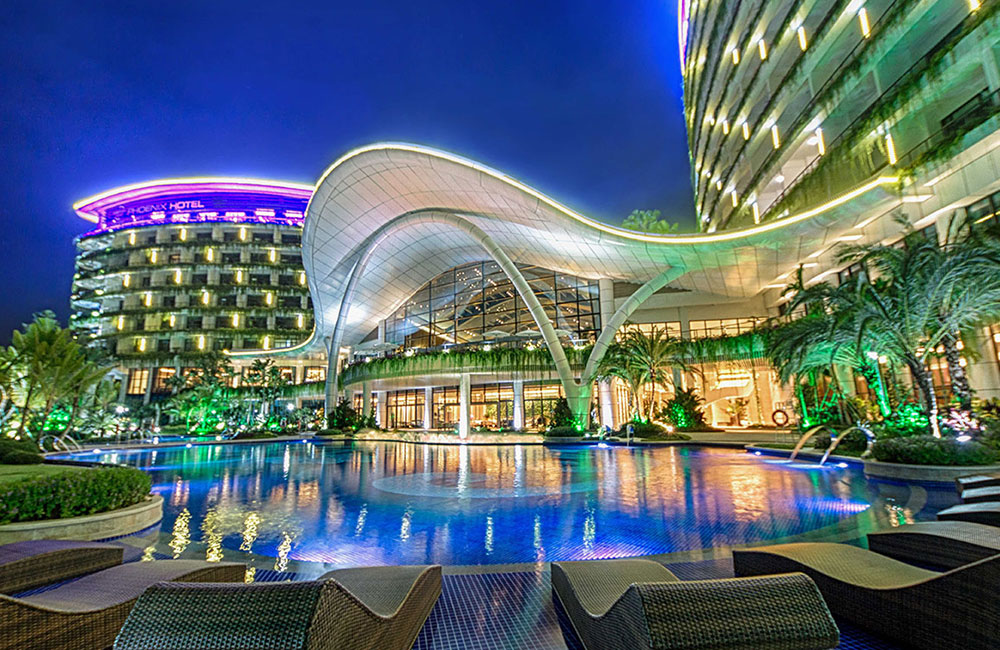Can India overtake China as Global Manufacturing Hub? - Part 2
MQTrader Jesse
Publish date: Fri, 19 Aug 2022, 04:58 PM

Economic Indicator
India is one of the 5 largest economies in the world, accounting for 3.28% of the world's GDP. Due to its population advantage, India's GDP has been growing at an average rate of 6-7% since the 21st century, making it the fastest growing economy in the world. According to PwC's report - The World in 2050, India will become the second largest economy in the world. Measured by GDP, India appears to have a very bright economic future. However, GDP is not the only indicator of a country's economic strength.
If GDP growth represents the opportunities for India, then the other indicator reflects the risks for India.
Unemployment rate
CMIE data shows that the unemployment rate rose from 7.1% in May to 7.8% in June. The country of 1.4 billion is not creating enough jobs for its growing labor force, which will push India from a demographic dividend to a demographic trap. The demographic dividend will not be directly converted into economic growth if India does not provide enough job opportunities, the quality of the labor force does not improve, and India becomes entangled in the demographic dividend, which means that the labor force is not able to convert into economic growth and the government may have to allocate budgetary resources to reduce unemployment.
Inflation rate
The SBI research report announces that Indian retail inflation was 7.01% in June 2022. There are two reasons for the increase in inflation in India: (1) the Russia-Ukraine war has led to high crude oil prices, and 80% of India's crude oil must be imported; (2) the economic recovery from the pandemic and the increase in economic demand is also the reason for the increase in commodity prices. High inflation can easily harm a country's economy and it could take a long time to recover. India currently has a population advantage, but if an external circumstance hurts its economy, it can easily ruin India. This is because the government has to take care of the livelihood of 1.4 billion people.
Trade balance
India's trade deficit reached a new high of $25.63 billion in June as high global commodity prices drove up the cost of importing oil and coal. As mentioned earlier, 80% of India's crude oil must be imported, and if crude oil prices remain in a higher range, it will hurt India's trade balance. India's trade gap poses new risks to the rupee, which has hit new lows against the U.S. dollar in recent weeks. The currency has depreciated since the beginning of the year, making the deficit much worse. This could lead to India's reserves being insufficient to cover its debts and to insolvencies like those in Sri Lanka.
Government Policy
We know from history that India has always been an extremely conservative country for business. India was always bitter about being colonised by Western countries for 300 years. Therefore, when India became independent, it opted for the socialist planned economy of the Soviet Union instead of capitalism, until the Indian crisis gave the IMF the opportunity to force India to open its economy. Although the economy had opened up, India continued to passionately pursue protectionist policies. India refuses to join the Regional Comprehensive Economic Partnership (RCEP) because it pursues a policy of economic self-reliance designed to promote domestic industry. India fears that foreign products will harm the domestic industry and has therefore set high import tariffs to protect the domestic industry.
Based on David Ricardo's economic theory of comparative advantage, free international trade benefits all countries because all countries produce a particular good or service at a lower opportunity cost than their trading partners, and all countries can buy the product at the lowest cost. However, an import tariff destroys this ability of the economy because the foreign product will be more expensive than a domestic product after the import tariff is included, even if the foreign product is cheaper and of better quality.
Protectionist steps are justified on the grounds that they would help domestic firms become viable competitors, but in reality, protectionism does not benefit the domestic economy. Instead, it encourages inefficiency among domestic manufacturers. It hurts exports, makes domestic goods more expensive, and diminishes consumer benefits from increased competition. In the long run, protectionism is only likely to have a negative impact on the ability of the industry to compete globally.
Indian Prime Minister Narendra Modi tried to use protectionism to achieve "Make in India." Make in India is a major national programme of the Government of India designed to facilitate foreign investment, foster innovation, enhance skill development, protect intellectual property and build best-in-class manufacturing infrastructure in the country.
However, this will only lead to the inefficiency of domestic manufacturers. If India wants to attract foreign companies to build factories in India and achieve "Make in India," they should focus on infrastructure in India. For example, a stable power grid can prevent the factory from suffering losses when the power goes out, or good road connections can reduce transportation costs, and others.
Only one good card among several bad ones
While India has the advantage of population structure, it does not have a strong economic background and the right policies to support rapid growth. The low social status of women will mean that the female labor force will not be able to compete in the market. In addition, the caste system prevents equal dialogue between people, which hinders further improvement of the industry.
Thus, if India wants to become a global manufacturing center, it must;
- improve its education system so that a better-educated workforce can support its operations, and;
- eliminate inequality among people so that people work harder for incentives, and;
- set reasonable import tariffs and let foreign products compete with domestic manufacturers, which will force domestic manufacturers to improve their product quality. If domestic manufacturers become more competitive, foreign companies will be willing to set up factories in India. The employment rate in India will improve, and the overall living standards of people will also improve.
Click here to refer back to the Part 1 blog.
Community Feedback
We encourage traders to try out and evaluate the MQ Trader system and provide us feedback on the features you like to see in the system. We have received many positive feedbacks so far, and we are currently compiling and reviewing them for possible inclusion into the next release of the system.
We would like to develop this system based on community feedback to cater for community needs. Thanks to all those who have provided valuable feedback to us. Keep those feedback coming in!
Disclaimer
This article does not represent a BUY or SELL recommendation on the stock covered. Traders and Investors are encouraged to do their own analysis on stocks instead of blindly following any Trading calls raised by various parties in the Internet. We may or may not hold position in the stock covered, or initiate new position in the stock within the next 7 days.
Join us now!
MQ Trader stock analysis system uses Artificial Intelligence (AI), various technical indicators and quantitative data to generate accurate trading signals without the interference of human's emotions and bias against any particular stock. It comprises trading strategies which are very popular among fund managers for analysing stocks.
MQ Trader stock analysis system is SPONSORED for MQ Trader members. To use this amazing tool, you can sign up via MQ Trader Sign Up!
Contact us
Please do not hesitate to contact us if you have any enquiry:
Facebook: https://www.facebook.com/mqtrader
Instagram:https://www.instagram.com/mqtrader
i3messanger: https://messenger.i3investor.com/m/chatmq
YouTube: https://www.youtube.com/channel/UCq-26SGjlQTVQfO7DoEihlg
Email: admin@mqtrader.com
More articles on MQ Expresso






Created by MQTrader Jesse | Oct 26, 2023


Created by MQTrader Jesse | Oct 12, 2023


Discussions
India is pretty much well control market for the selected very few bhramins! Don't bother!
2022-08-19 18:19
Tobby seems to still live in the past. Come out of the cave and see the light. Indians have now crossed caste. It is the enemies of India who are constantly using this "caste" argument to undermine them and project them badly for reasons know only to them. The fact they have progressed in some areas is creating envy elsewhere.
2022-08-20 11:33








.png)










Tobby
India can't! Because the social structure is very faulty! And India is the most protectionism nation! Many countries have tried and almost all burn!
2022-08-19 17:17